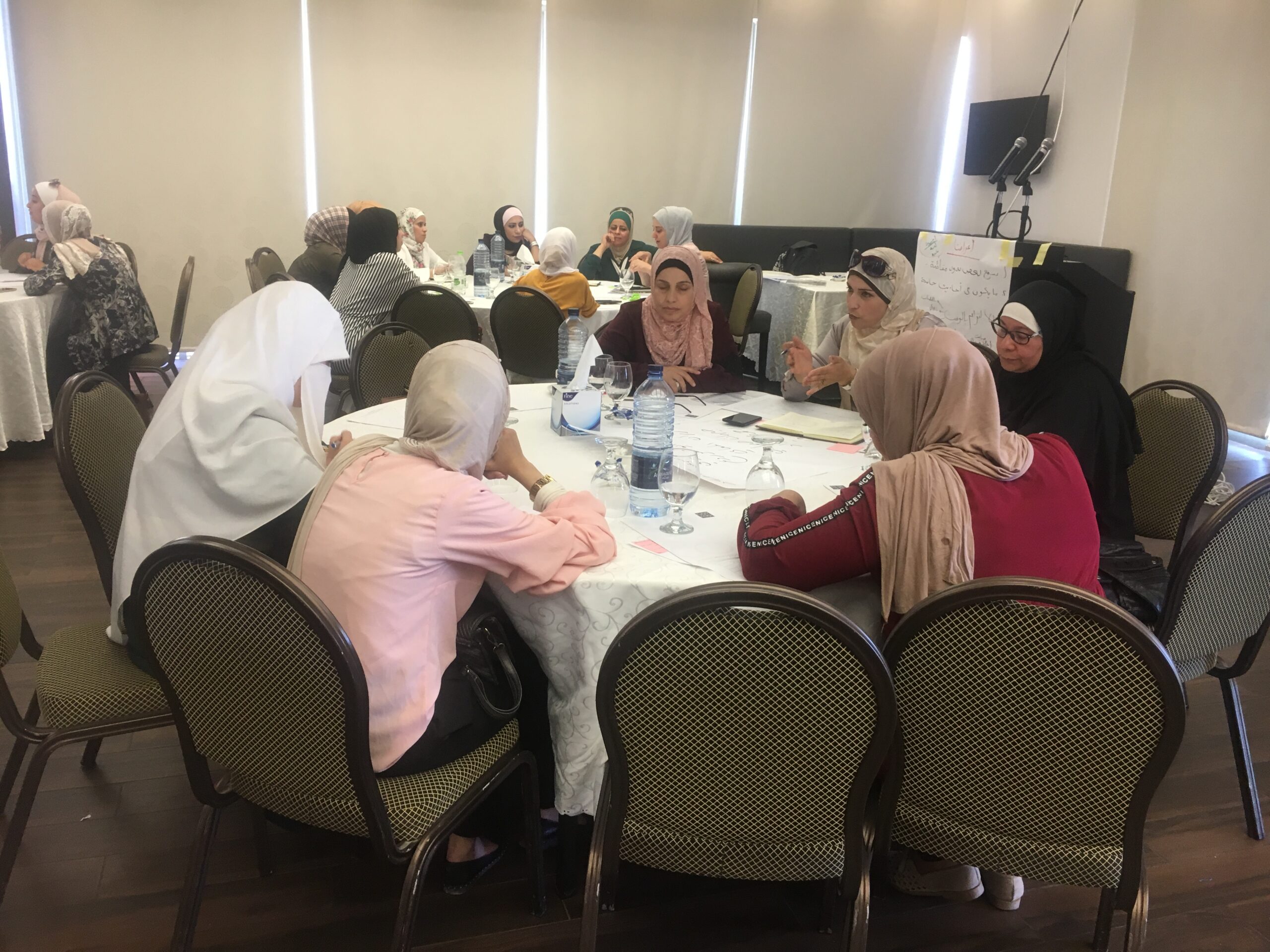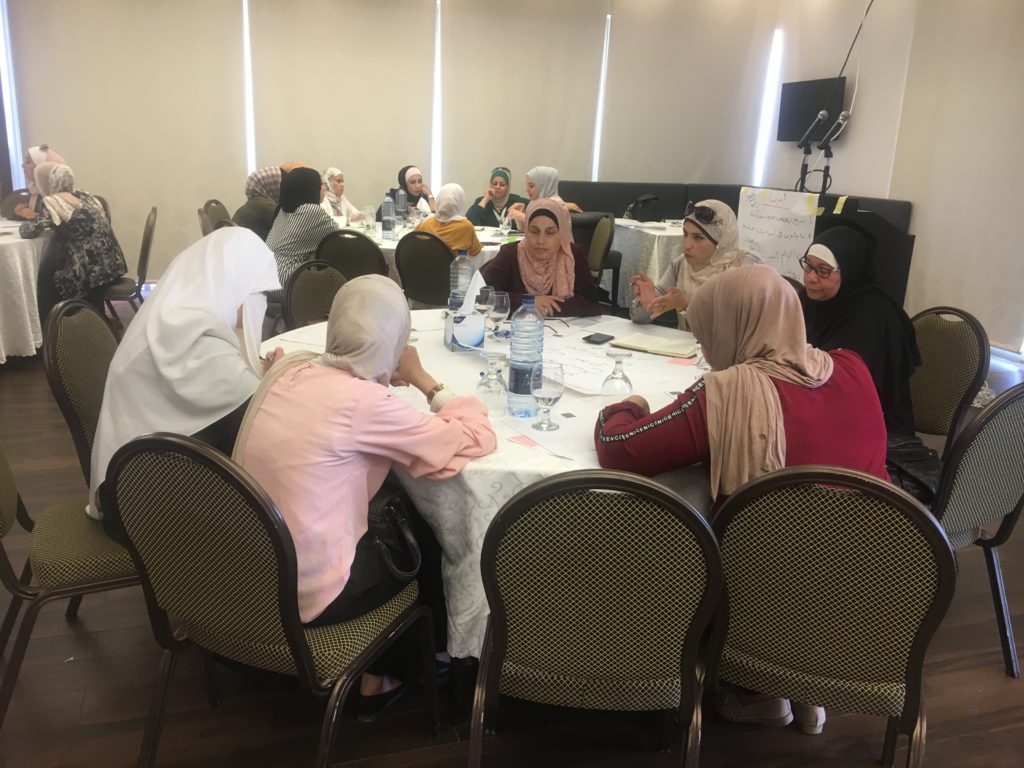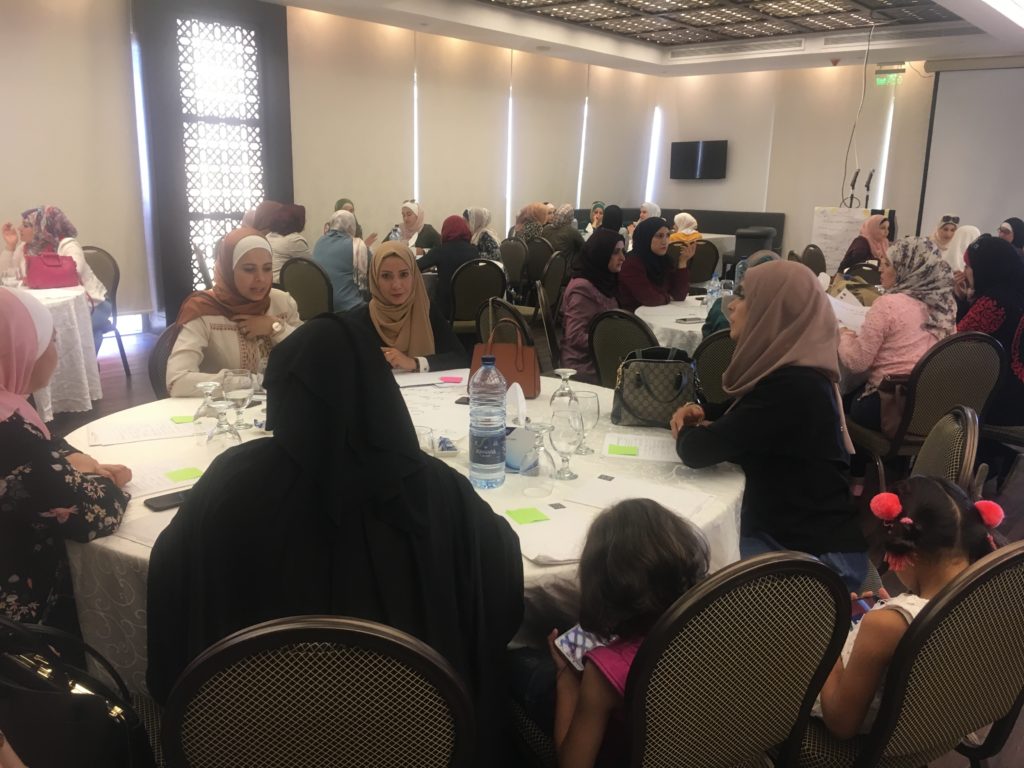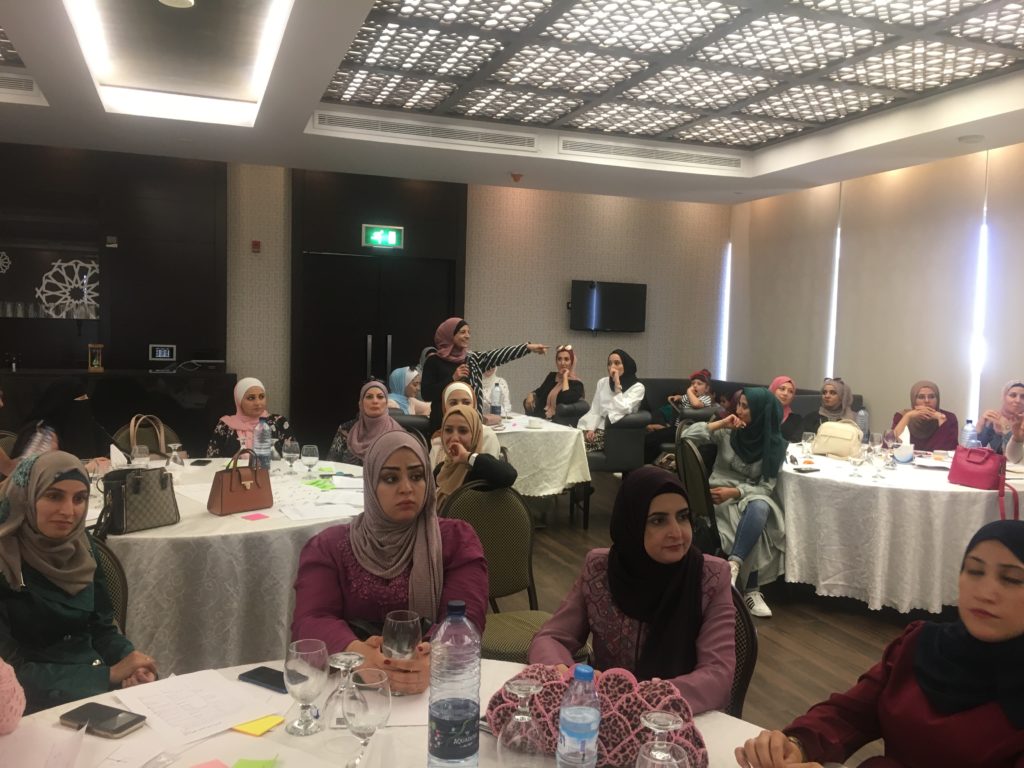id=”678″ id=”post-2045″ class=”wp-post-content-block ” itemscope itemtype=”http://schema.org/BlogPosting” itemprop=”blogPost”>
Popular education; protecting teachers’ rights
By: Shara Jazzar
Throughout the past year, Ahel, in cooperation with Hivos, has implemented its popular education program that targeted female educators that are part of its Stand Up With the Teachers campaign with the aim of improving preconditions for women’s rights and gender equality as well as giving them tools and capacity for equal participation.
What is popular education?
Popular education is a teachers’ empowerment training program that encompasses a number of workshops on the Jordanian labor law and the Unified Contract, teaching methods, as well as sessions to discuss topics such as ‘yourself and the others’, ‘belonging’, ‘team spirit’, ‘self-confidence and trust in others’, etc.
Collective success stories
Empowered by the popular education sessions they attended, teachers at a school in Irbid organized a collective opposition at their establishment at the end of the scholastic year and demanded to be paid the minimum wage set at 230 JODs – instead of their current salaries of 120 JODs – and also receive their salaries through bank transfers. As a result of the cohesion and solidarity of all of the teachers, the school’s administration had no other option but to respond to the two conditions of its employees, as it could not risk losing all of its staff. This is a successful example of collective opposition.
Another case is that of teachers at a school in Ajloun who were requested at the end of June to sign on a white paper, rather than on a clear and straightforward contract. The female educators collectively refused to abide by the requirement and are still waiting to see how the negotiations will progress with their administration. So far, we can say that the teachers have succeeded in ensuring that they work as a common front; thus, make their stand more powerful and prone to success.
Personal experiences of teachers
Shurouq is a new graduate who teaches at a school in Amman. After attending the Popular Education sessions, she “learnt how to say no, even though this is difficult.” Moreover, she became capable of facing injustice. In her opinion, future trainings should address issues such as job interviews as this will empower female teachers on the practical level and raise their chances of finding jobs as well.
Doha, a colleague from Irbid, discovered through the workshops that “people trust her”. As a consequence, her self-confidence was boosted and her personality became stronger and more assertive. She also tries to advise her nephews on different situations they face when needed, based on the expertise she gained.
As for Hoda from Zarqa, the program allowed her to make new experiences, which enabled her to “face the decisions of her school’s administration based on the legal knowledge she has acquired.” She plans to share what she has learnt with her acquaintances, in order for them to benefit from it and have the chance to become empowered regarding their rights, just like she has.
In turn, for Inas from Al-Salt, the popular education program was an eye-opener on her rights. After working for years in teaching, she eventually discovered through the sessions that she is entitled to an annual raise by law. Consequently, she claimed it and eventually received it. Additionally Inas, who was a yes person, learnt how to say no – both in her private and professional life – and this makes her feel good about herself.
Her colleague Ola, from the same region, found out through the training what are her rights and responsibilities. Hence, she will no longer accept to sign on a white paper or a contract that does not guarantee her basic rights. Furthermore, she tries to raise the awareness of her colleagues in that regard, with the hope that there will face less situations of injustice in the future.
Common experiences
Despite the fact that each teacher is different, most of them expressed similar points. For instance, the majority has been empowered to say no and face injustice, based on the legal training and self-confidence session in particular. Additionally, they have acquired legal knowledge on which they can rely to guarantee their rights when renewing or signing their contracts. As well, since they have learnt the importance of solidarity, in particular in situations of injustice or rights infringement, these educators always support one another. They also either encourage other teachers to join the Campaign in order to attend the sessions or brief them on what they have learnt so they can benefit from the information.
A look towards the future
We cannot but reflect on the fact that the majority of female teachers have highlighted learning ‘how to say no’ as a major personal impact of the popular education sessions. What does this mean? Simply that women in our society are mostly conditioned to say yes; thus, accept things they might not want just because it is not socially acceptable for them to refuse. Hence, the relevance of initiatives such as the popular education circles lays in the fact that they empower teachers first as women, not only on the legal level but also on very basic social and interpersonal skills. As a result, females at the end of the sessions have gone through a lasting transformational process that benefits them as human beings.







